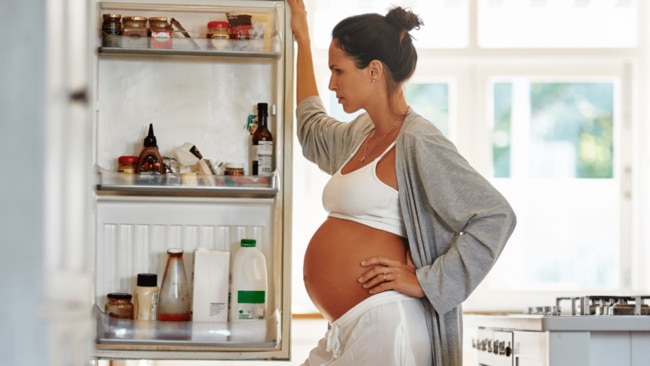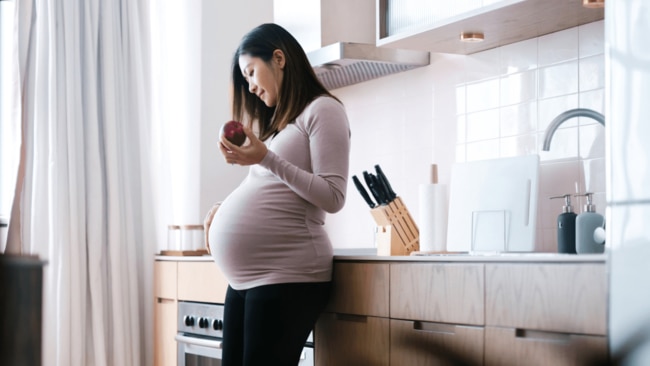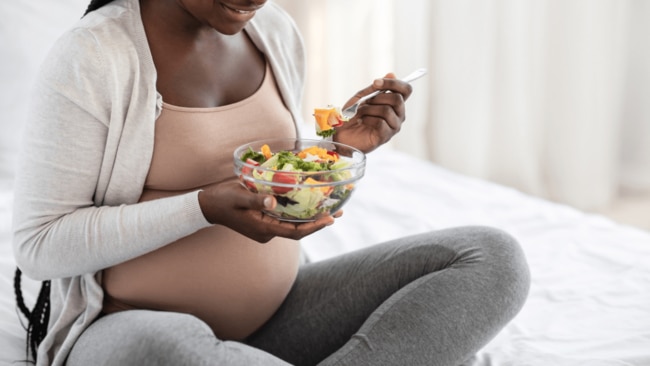Pregnancy diet women's mental health postnatal fibre
No, it’s not another supplement

Lifestyle
Don't miss out on the headlines from Lifestyle. Followed categories will be added to My News.
Women around the world experience changes to their mental health during or after pregnancy. Researchers from one Australian university believe they’ve found a crucial ingredient to help combat this.
We already know fibre is an important element of our diets, and we all probably need more.
Now researchers from Southern Cross University believe they may have found another reason for women to increase their fibre intake – particularly if they're planning on starting a family.

A team from the university’s National Centre for Naturopathic Medicine reviewed data from 13 studies involving pregnant and postpartum women. They found a link between higher fibre intake and better mental health outcomes for mothers.
Pregnant women are already advised to take many supplements, from folate and iodine, to vitamin D, iron and calcium to promote their and their baby’s health.
Fibre is a simple and easy addition to meals (that requires no additional tablets!) and probably in many of the foods you are already eating.

New mothers' mental health
As per the Black Dog Institute, many women experience ‘A brief episode of mood swings, tearfulness, anxiety and difficulty with sleeping that is very common in the first week after the birth of a baby’, called ‘the baby blues’. This passes without special treatment, but other mental health issues in new mothers can be long-lasting.
The World Health Organisation (WHO) says ‘globally maternal mental health problems are considered as a major public health challenge.’
‘Virtually all women can develop mental disorders during pregnancy and in the first year after delivery… worldwide about 10 per cent of pregnant women and 13 per cent of women who have just given birth experience a mental disorder, primarily depression.
'In developing countries, this is even higher’.
In Australia, 10 to 15 per cent of women experience mood swings while pregnant and about 14 per cent of women experience postnatal depression.

The role of fibre in mental health
The team at Southern Cross University said their study’s findings suggest that fibre intake may support maternal mental health by positively impacting the gut microbiome, which plays a critical role in the Gut-Brain Axis – a communication system between the gut and brain.’
Fibre promotes the growth of good bacteria in our guts, which the researchers say ‘produce short-chain fatty acids (SCFAs) with anti-inflammatory and neuroprotective properties’.

Dr Neda Ebrahimi led the study, and explains that a healthier gut microbiome “has a direct effect on mental wellbeing by reducing inflammation and supporting serotonin production, a neurotransmitter central to mood regulation.”
So in addition to supporting our digestive systems, a high-fibre diet may also improve our mental wellbeing.

How to boost your fibre intake
The Southern Cross University team found that ‘fibre-rich foods like fruits, legumes, and whole grains were associated with improved mental health outcomes’ during their study.
If you’re looking to up your fibre intake, there are plenty of foods you can add to your diet to help, including:
- Broccoli
- Chickpeas
- Lentils
- Apples
- Pears
- Strawberries
- Bananas
- Blueberries
- Quinoa
- Nuts and seeds
- Beans
- Brown rice
- Celery
But as always, talk to your doctor before making any changes to your diet. Your GP is the best resource for any concerns about what foods are best for you during your pregnancy.

In an emergency please call 000
If you or someone you know needs help, phone Lifeline on 13 11 14 or the 24- hour Suicide Call Back Service 1300 659 467.
Mental health professionals are available 24/7 at the beyondblue Support Service – 1300 22 46 36 or via beyondblue.org.au/get-support for online chat (3pm-12am AEST) or email response.
More Coverage
Originally published as Pregnancy diet women's mental health postnatal fibre





